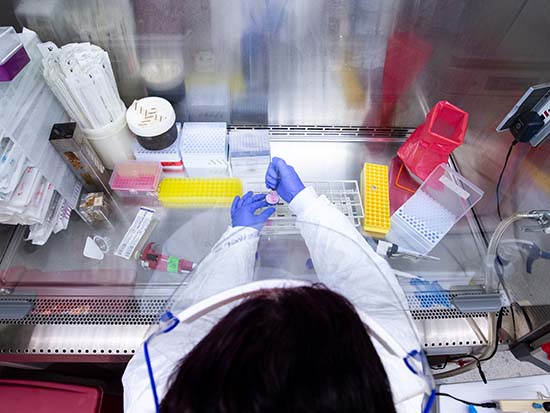Media contact: Brianna Hoge
 Photography: Lexi CoonIt is typical for high school students and their parents to worry about choosing a career field that will fit well with both their personal interests and market demands. As our world continues the fight against the COVID-19 pandemic and continues to technologically advance, the opportunities for science, technology, engineering and math majors are exploding, making the field more competitive. A study by University of Alabama at Birmingham experts shows that early STEM internships have a significant impact on academic and professional success in STEM.
Photography: Lexi CoonIt is typical for high school students and their parents to worry about choosing a career field that will fit well with both their personal interests and market demands. As our world continues the fight against the COVID-19 pandemic and continues to technologically advance, the opportunities for science, technology, engineering and math majors are exploding, making the field more competitive. A study by University of Alabama at Birmingham experts shows that early STEM internships have a significant impact on academic and professional success in STEM.
The research study evaluated high school students participating in the UAB Center for Community Outreach Development’s Summer Science Institute III Program. Researchers tracked participants over an eight-year period.
Results showed that research internships motivate students to choose STEM majors and pursue STEM careers. Over 99 percent of the surveyed interns chose a STEM undergraduate major, and 97 percent of the former interns reported they were pursuing STEM careers.
“The internship program has encouraged a very diverse population of students to consider STEM careers, increasing diversity in these careers,” said J. Michael Wyss, Ph.D., Distinguished Professor in the UAB College of Arts and Sciences’ Department of Cell, Developmental and Integrative Biology and director of the CORD program.
Results from the study highlight the importance of high school student involvement in STEM internships as a pathway that leads toward STEM careers. The interns reported that the summer program experience was positive and had a high impact on career decisions.
“Nationally, employers in most fields are seeking individuals who have internship experiences and are able to immediately use their skills in their new position,” Wyss said. “Many high school students have great knowledge; but in these internships, they also gain an understanding of how to approach a question and answer it.”
UAB CORD provides rising high school seniors with opportunities to conduct research in federally funded laboratories under the mentorship of UAB faculty. Other CORD programs offer grade K-12 students and teachers from all areas in-depth, hands-on, inquiry-based science experiences both during the school year and in summer programs.
“In the CORD program, students are enabled to develop a research question, design the needed experiments, conduct the research and report their findings,” Wyss said. “It engages students’ interest in science, elevates their knowledge of the subjects and provides them with critical research skills.”
CORD internships also provide personal development in preparing students for college and career success, by exposing them to different disciplines, university faculty, team-building activities, college finance and admission procedures and teaching them to think critically.
To learn more and apply to UAB’s CORD program, visit https://www.uab.edu/cord/ or contact ccord@uab.edu.